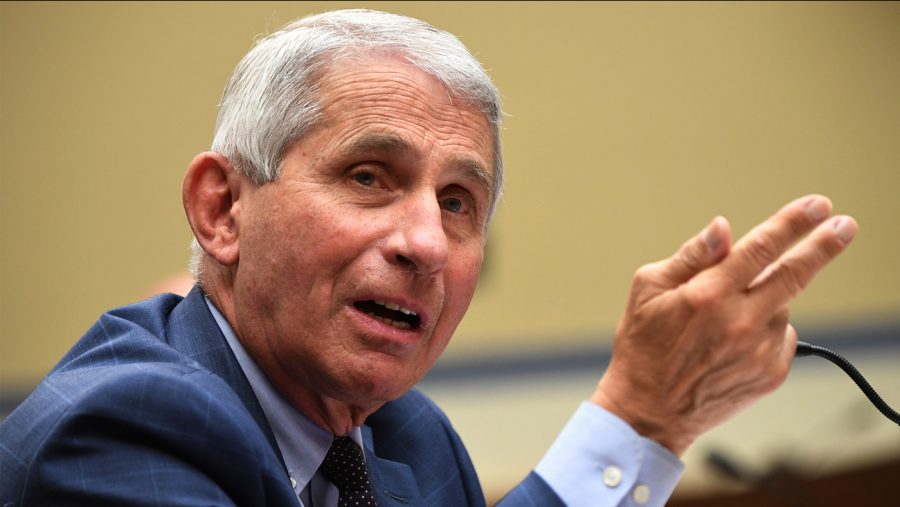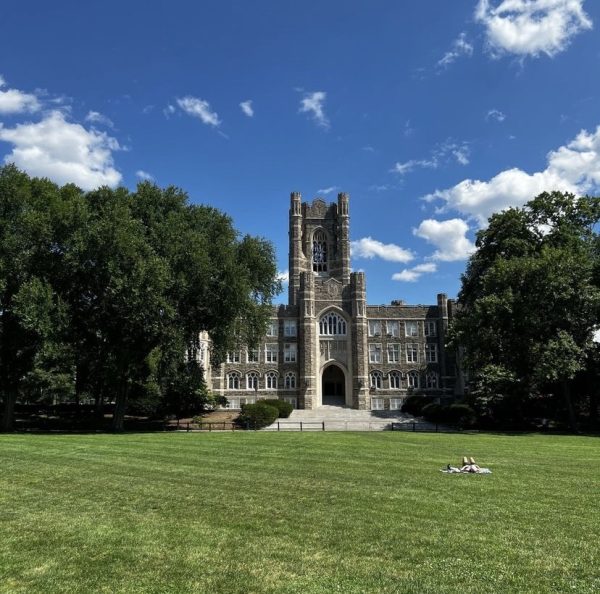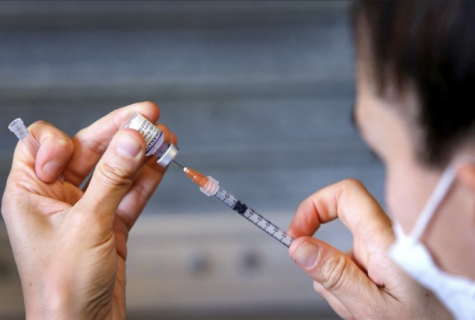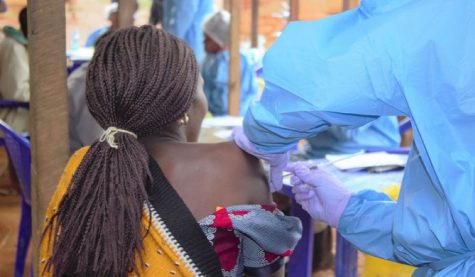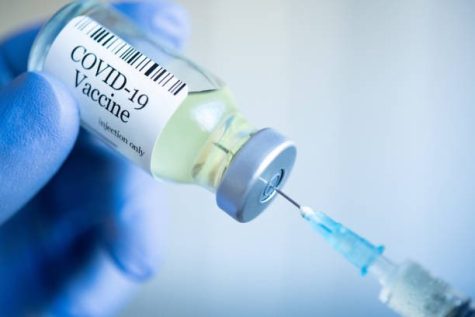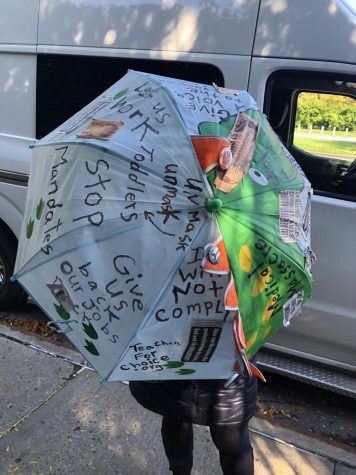The “Fauci Effect” Drives Increase in Medical School Applications During Global Pandemic
In the midst of a global health crisis, Matthiew Chen, FCRH ’21, applied to 24 medical schools. He is not alone in being undeterred by the pandemic — in fact, the amount of medical school applications has increased by over 18% in the last year, according to the Association of American Medical Colleges. This is compared to a typical increase of less than 3% in recent years.
The remarkable spike in applications during the 2020-2021 application cycle has been coined the “Fauci Effect” by medical school admissions officers. They cite public health leaders like Dr. Anthony Fauci as inspiring a new generation of healthcare professionals through compassionate and knowledgeable leadership of the country during the COVID-19 pandemic.
The Frank H. Netter MD School of Medicine, one of the schools that Chen applied to, received over 9,200 applications this year, the highest total in their history and a 28% increase from the previous year. “Dr. Fauci obviously has played a role in that [increase], with the wonderful handling of COVID-19,” said Chen.
But the phenomenon is also more complicated than that, as is the pandemic’s effect on pre-med students like Chen. Ellen Watts, assistant dean for Pre-Health Advising at Fordham, said that in reality, it takes about three to four years of planning to apply to medical school. Everyone who applied this year has likely been working towards their applications since long before the pandemic.
Watts attributes the spike in applications more to students’ post-graduation plans being canceled for pandemic-related reasons than the influence of leading medical experts. Students who otherwise would have been embarking on year-long research projects or volunteer work may have decided to apply to medical school without taking a gap year. Students also had more time to devote to the application process during a year of lockdowns and increased isolation. Applying to medical school is a labor-intensive process, and some students may not have otherwise had time, explained Watts.
“I think the [naming of the] Fauci Effect is better described by Dr. Fauci being a product of a Jesuit high school and a Jesuit college,” Watts says. “He really is a tremendously compassionate and service-oriented individual, and I think that Fordham students can see a lot of their own traits in the way he’s conducted himself over the course of such a long and successful career.”
Despite the increasingly competitive applicant pool, Watts does not expect to see a difference in Fordham students’ acceptance rate. She said she believes they are always well-prepared when they apply. Despite obstacles presented by the pandemic, such as remote learning, testing delays and virtual interviews, students are as ready as ever for medical school, said Watts. In place of research or clinical work, many have been volunteering at food banks, helping the elderly and tutoring children after online school.
Still, the Fauci Effect has been an additional stressor for students in a time when they are already dealing with far too much stress. John Rosello, a full-time hospital worker and student in Fordham’s School of Professional and Continuing Studies, plans to apply to medical school during next year’s cycle. He worked full-time as a bedside nurse at the beginning of the pandemic and now works in quality and patient safety at the same hospital.
For Rosello, who received his bachelor’s degree outside the United States, the Fauci Effect is just another obstacle. “I already have a limited number of schools that I can apply to,” Rosello says. “And now, with more competition, it is overwhelming to think about.”
However, he and other prospective applicants are far from giving up hope. “Our students have been really reflective and resilient, recognizing that you can only do what you can do,” said Watts. “They’ve understood that this is the nature of healthcare.”
Only two people at Fordham changed their minds about applying to medical school this year, according to Watts. In fact, the pandemic and the added stress of the Fauci Effect have made many applicants, including both Chen and Rosello, more confident that they want to become doctors.
“The pandemic has really opened my eyes to the role that the healthcare profession plays in keeping all of us safe,” Chen says. “I want to repay those people, to contribute to the fight against COVID-19 and to contribute to people’s well-being.”
The pandemic has also shown Chen the necessity of greater physician advocacy — the responsibility he feels to make medical practice more equitable has been a strong motivator for this year. He said he wants to help those who are least served by the healthcare system and most vulnerable to disease and infection.
“Changes need to be made. I really can’t wait any longer,” said Chen.
Rosello no longer wants to go into emergency medicine after living the daily reality of the pandemic and feeling its effects in himself and his coworkers. However, he says it has firmed up his resolve that he wants to practice medicine and he now has more faith in the healthcare system.
“If you have leaders who watch out for their staff, don’t care about the financial setback and are understanding of the situation people are in, I think you can get through a lot of issues,” said Rosello. Now, he is ready to be a physician and lead in his own respect.
Watts said that while she believes the Fauci Effect will likely diminish by next year, the change in mindset of future healthcare workers will last much longer than that. Perhaps in a few years, we will see a truer Fauci Effect emerge as new college students, inspired by Dr. Fauci and others, begin their medical school journey.



































































































































































































